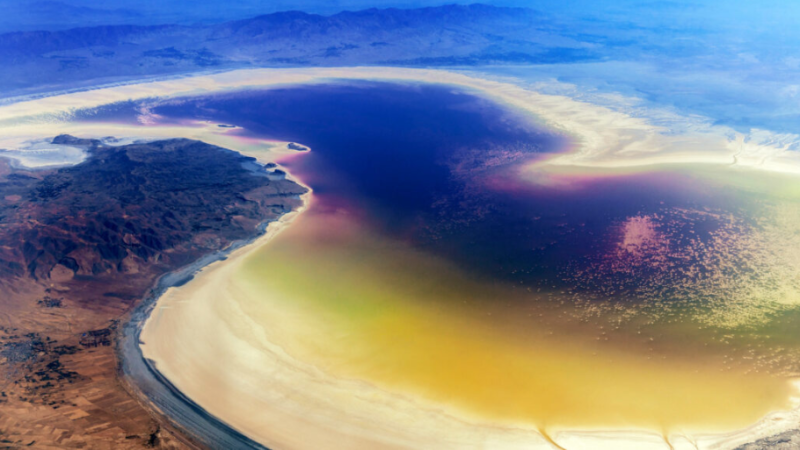By Nikk Ogasa
Lake loss is a big problem for people who
rely on that water for drinking and irrigation.

Lake
Urmia in Iran was once the world’s second largest salt lake, but since 1998 its
area has shriveled by more than 90 percent.
(By PAVLIHA/ISTOCK/GETTY IMAGES
PLUS)
More than half of the world’s largest lakes
shrank over the last three decades, researchers report in the May 19 Science.
That’s a big problem for the people who
depend on those lakes for drinking water and irrigation. Drying lakes also
threaten the survival of local ecosystems and migrating birds, and can even
give rise to insalubrious dust storms (SN: 4/17/23).
”About one-quarter of the Earth’s
population lives in these basins with lake water losses” says surface
hydrologist Fangfang Yao of the University of Virginia in Charlottesville.
Using satellite observations from 1992 to
2020, Yao, then at the University of Colorado Boulder, and colleagues estimated
the area and water levels of nearly 2,000 freshwater bodies. That work provided
a continuous stream of lake volume measurements. The lakes account for 96
percent of Earth’s total natural lake storage and 83 percent of that in
reservoirs. The team also used population data to estimate the number of people
living by the drying lakes.
About 53 percent of the world’s lakes have
clearly shrunk, the researchers found, while only 22 percent made gains. From
these bodies of water, roughly 600 cubic kilometers of water were lost over the
28-year time span. That’s around 17 times the maximum capacity of Lake Mead,
the largest reservoir in the United States.
The researchers used hydrologic and climate
simulations to tease out the processes influencing the fluctuating water
bodies. They found climate change and human consumption were the main causes of
the decline in natural lakes, while in reservoirs, sediment buildup was the
primary driver of storage loss.
CITATIONS
F. Yao
et al. Satellites reveal widespread decline in global lake water storage.
Science. Vol. 380, May 19, 2023, p. 745. doi: 10.1126/science.abo2
For
details: https://www.sciencenews.org/article/largest-lakes-drying-shrinking-climate

